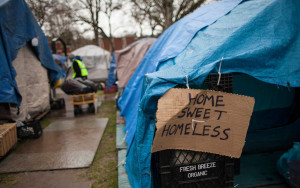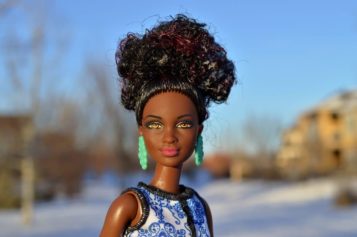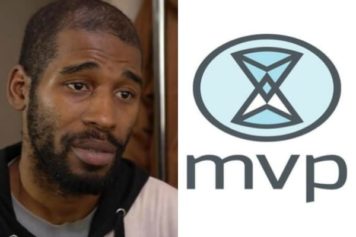
While Seattle is the 23rd largest city in the U.S., it currently has the country’s fourth largest homeless population, according to an analysis in ThinkProgress. And more than 60 percent of the homeless are people of color—an alarming overrepresentation of Black men.
The city appears to be a perfect storm of circumstances conspiring against Black people—with the end result being huge numbers forced to fend for themselves on the streets, staying in places like Seattle’s sprawling Tent City locations.
From 1980-2011, the prison population in the Emerald City increased fivefold, from 315,974 to 1,537,415, according to the King County Department of Adult & Juvenile Detention. And 35.7 percent of those prisoners were Black—in a city with a Black population of just 7 percent.
It’s a well-known fact that former convicts have an exceedingly tough time finding employment when they are released. In Seattle, the task of finding a job appears to be even harder.
Seattle is “tremendously racist,” Michael Volz, a caseworker who served the homeless for more than six years through the King County Jail and later Veterans Affairs, told ThinkProgress. “Racist in our hiring practices; racist in the way people are treated when they try to receive services.”
Worst of all, the homeless numbers are going in the wrong direction—up. There are an estimated 2,300 homeless in Seattle, according to the most recent count conducted in January 2014. That was an increase of more than 400 over the previous year.
Seattle already spends more than $37 million on homeless services, which Mayor Ed Murray said is the nation’s third-largest budgetary allocation after New York City and Los Angeles. Murray wants to build three additional tent cities to deal with the growing numbers, according to the Seattle Times.
But why are the numbers growing?
Based on interviews ThinkProgress conducted with members of the homeless population, a big part of the problem is that they have been unable to find work.
An African-American homeless man who goes by the name of “Greedy D” told ThinkProgress that although he has a culinary arts degree and went through the Job Corps, he is unable to find work at the age of 30. A car accident, debt, bad luck and a poor support system has resulted in a life on the streets.
Greedy knows his race makes things much harder for him.
“I’m an African American, I’m scruffy,” he told ThinkProgress. “I have a lot of stereotypes [like] he only listens to rap music, he might be mean to me, he might yell or talk with a loud tone.”
He said Black men have to work harder in the U.S. “If you know that you have people against you, or you know about racism, you know about what this country’s history is,” he said. “You have to over-perform at your best.”
Another homeless man, identified as “Willie,” said that when people see his dark skin, they want to know, “What’s my angle? What do I want?”
Willie, 40, graduated from college and holds an Associate’s degree and various certificates, he told ThinkProgress.
“But when [employers] actually see me, everything seems to change,” he said. “I’m going to get a 16 dollar an hour job, but I’m offered an 8 or $9-an-hour job.”
If Willie agrees to the lower-paid position, he gets told the job is filled when he calls back a week later to inquire, he said.
Local organizations in Seattle came together a decade ago to craft a 10-year plan to end homelessness by moving the homeless quickly into housing and taking a number of other actions. Clearly it never happened.
“I don’t see how the city can possibly have a 10-year plan to end homelessness without addressing the disproportionate poverty, the discriminatory housing practices, the gatekeeping that happens in the city for services,” Volz said. “There’s so many more systemic issues going on that if you don’t address those, what are we doing? It’s like if you have a broken bone, I’m not going to talk about the scrape on the skin.”
Volz said he has to ask the homeless people about whether they have a criminal record when they are seeking services. He said this is often the response he gets: ‘I’m a black man. Of course. Of course I’ve been arrested. I’m homeless…I’m harassed by the police. I’m arrested constantly. It’s a huge barrier.’
“They’re right,” Volz said. “It’s a huge barrier.”


